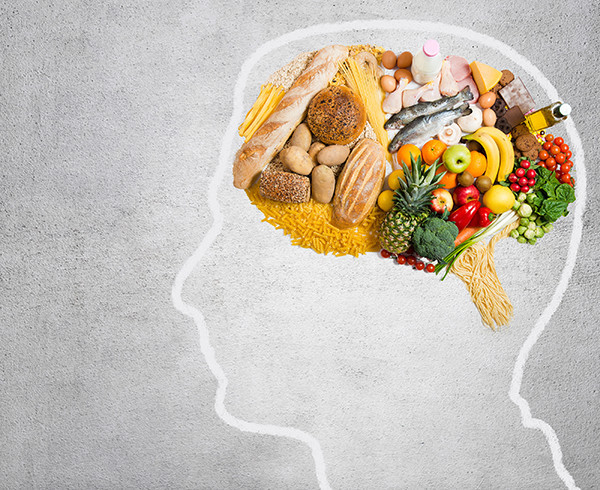Good nutrition plays a vital role in maintaining both mental and physical health. The food you eat directly impacts how your body and mind function, influencing energy levels, mood, cognitive ability, and overall well-being. Here’s how nutrition contributes to a healthier body and mind:
Physical Health Benefits of Proper Nutrition
a. Supports Growth and Repair
The body relies on nutrients like proteins, vitamins, and minerals for tissue growth and repair. For example, calcium and vitamin D are crucial for strong bones, while protein aids in muscle development.
b. Boosts Immune System
Foods rich in antioxidants, like fruits and vegetables, enhance the immune system, helping your body fight illnesses. Vitamin C, zinc, and selenium are particularly beneficial.
c. Enhances Energy Levels
Carbohydrates, fats, and proteins are the primary sources of energy. Balanced meals with complex carbohydrates (e.g., whole grains) provide steady energy, while unhealthy options like sugary snacks lead to crashes.
d. Prevents Chronic Diseases
Proper nutrition can reduce the risk of chronic conditions such as heart disease, diabetes, and hypertension. Diets rich in fiber, healthy fats, and low in processed foods are essential for long-term health.
Mental Health Benefits of Proper Nutrition
a. Improves Mood and Emotional Stability
A diet rich in omega-3 fatty acids (found in fish, walnuts, and flaxseeds) can alleviate symptoms of depression and anxiety. Additionally, foods high in magnesium, like dark chocolate and leafy greens, promote relaxation and reduce stress.
b. Enhances Cognitive Function
Brain-friendly foods like blueberries, nuts, and fatty fish improve memory, focus, and overall cognitive function. Omega-3s, in particular, are known to support brain health.
c. Regulates Sleep Patterns
Certain nutrients, such as tryptophan (found in turkey, eggs, and nuts), help produce serotonin, which regulates sleep and mood. A balanced diet contributes to better sleep quality.
d. Balances Gut Health
The gut and brain are interconnected through the gut-brain axis. A diet high in probiotics (e.g., yogurt, fermented foods) and prebiotics (e.g., bananas, garlic) can promote a healthy gut microbiome, which positively affects mental health.
How Poor Nutrition Impacts Health
a. Physical Health Issues
Consuming too much processed food, sugar, and unhealthy fats leads to obesity, heart disease, and nutrient deficiencies.
b. Mental Health Challenges
A poor diet can worsen conditions like depression and anxiety. High sugar consumption, for example, has been linked to mood swings and fatigue.
Tips for a Balanced Diet
- Eat a Rainbow: Incorporate a variety of fruits and vegetables to ensure you get all essential nutrients.
- Focus on Whole Foods: Minimize processed food intake and choose whole grains, lean proteins, and healthy fats.
- Stay Hydrated: Water is crucial for both physical and mental performance. Aim for 8 glasses a day.
- Plan Your Meals: Preparing balanced meals in advance can help maintain consistency.
- Listen to Your Body: Pay attention to hunger and fullness cues to avoid overeating.
Conclusion
Nutrition is the foundation of a healthy life. A balanced diet not only supports physical health by improving energy, immunity, and longevity but also enhances mental well-being by reducing stress, boosting mood, and supporting brain function. By prioritizing wholesome, nutrient-rich foods, you can achieve harmony in both your body and mind.
Start small—every positive change in your diet is a step toward a healthier, happier you!
FAQs:
1. How does nutrition impact mental health?
Nutrition plays a vital role in brain function and mood regulation. Nutrients like omega-3 fatty acids, magnesium, and vitamins B and D support brain health, reduce stress, and alleviate symptoms of anxiety and depression.
2. Can poor nutrition cause mental health issues?
Yes, diets high in sugar, unhealthy fats, and processed foods can worsen mental health conditions like depression and anxiety. A lack of essential nutrients may also affect mood and cognitive function.
3. What foods are best for improving mental health?
Foods like fatty fish, nuts, seeds, whole grains, leafy greens, and berries are great for mental health. Probiotic-rich foods like yogurt and fermented items also promote a healthy gut, which influences mental well-being.
4. How does nutrition affect physical health?
Proper nutrition supports growth, repairs tissues, boosts immunity, and prevents chronic diseases like heart disease, diabetes, and obesity. A balanced diet also provides sustained energy and enhances overall physical performance.
5. What are some common signs of poor nutrition?
Signs of poor nutrition include fatigue, frequent illnesses, brittle hair and nails, mood swings, and difficulty concentrating. Chronic poor nutrition can lead to more severe conditions like obesity or nutrient deficiencies.
6. Can good nutrition improve sleep quality?
Yes, foods rich in tryptophan (like turkey, eggs, and nuts) help produce serotonin, which regulates sleep. Avoiding caffeine and heavy meals close to bedtime also promotes better sleep.
7. What is the gut-brain connection, and how does it relate to nutrition?
The gut-brain axis is a communication network between the gut and the brain. A healthy gut microbiome, supported by probiotics and fiber-rich foods, can positively influence mental health, reducing anxiety and depression.





